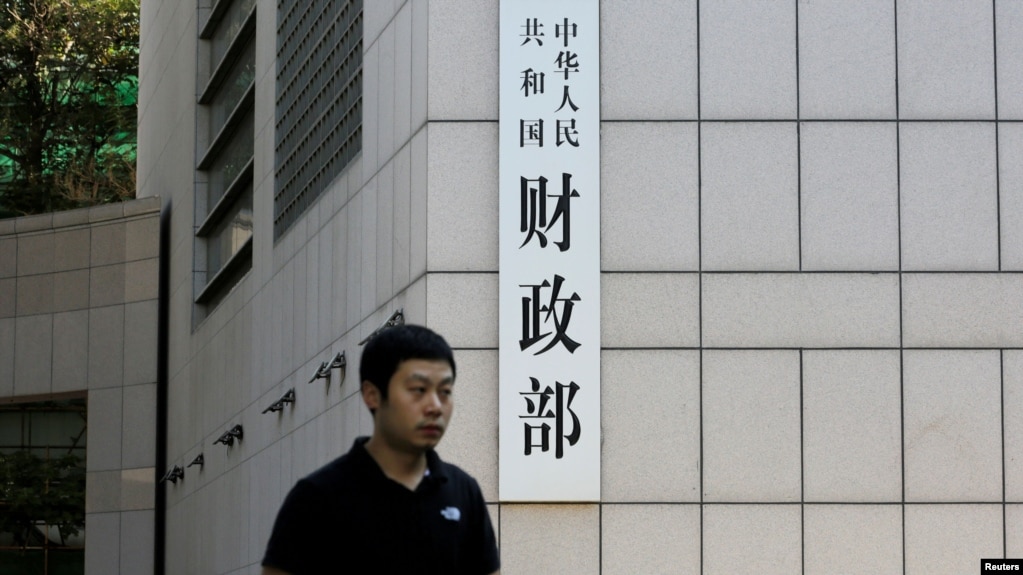
WASHINGTON —
The Chinese government announced on Friday (December 9) that it will issue special treasury bonds next week to raise 750 billion yuan to help the national economy, which is currently in serious difficulties, get out of the predicament.
China's finance ministry said on Friday that the bonds would be used to "support the development of the national economy and social undertakings." Professionals pointed out that during the COVID-19 pandemic, China rarely used financing tools such as bonds.
China's Ministry of Finance said that the current treasury bonds will be issued to relevant domestic banks in the national inter-bank bond market, and the People's Bank of China will conduct open market operations for relevant banks.
The current treasury bond is a three-year fixed-rate interest-bearing bond with a total issuance value of 750 billion yuan, which can be listed and traded. The issue date and value date are set for December 12, 2022.
The US financial media Bloomberg said that the notice from the Ministry of Finance of China did not specify whether these national debts were new national debts or refinancing of the original national debts that were about to expire. China once issued treasury bonds in 2007, one of which was 750 billion yuan, due to expire on December 11 this year.
Bloomberg quoted Liu Jie, head of China macro strategy at Standard Chartered Bank in Hong Kong, as saying: "If these national debts are new funds, then this means that China will adopt a highly active economic policy in 2023, which confirms the political bureau meeting of the Communist Party of China. position."
Liu Jie said that the number of government bonds issued this time and the relevant dates are confusing. It is generally believed that the special government bonds issued in the past will be continued after they expire.
Chinese leaders have pledged that authorities will strive to achieve a "full recovery" of the economy next year as the epidemic is gradually eased. Official economists advocate issuing more sovereign bonds to fill fiscal gaps and stimulate economic growth.
The vast majority of experts believe that the Chinese economy is currently in the worst state since the 1970s (except for the first year of the pandemic outbreak in 2020).
Adam Wolfe, an economist at Absolute Strategy Research, a London-based economic research institute, told Bloomberg that "coming out of zero and fighting the epidemic may cause economic turmoil in the next two quarters, and additional fiscal support may be necessary. .”
"This seems to suggest that the Ministry of Finance will bear a greater burden, possibly due to the fact that some local governments are struggling under the debt limit."
Recently, a piece of information circulated on the Internet saying that the financial situation of the Guangzhou Municipal Government has reached the point where there is no money available. You can only make a white note when you do anything. The Guangzhou municipal government has exhausted all its resources in order to arrange quarantine personnel, recruit "Dabai", conduct nucleic acid tests for all staff, build shelter hospitals and other endless anti-epidemic tasks.
As the engine of China's economy, Guangzhou is like this, and the financial situation of other provinces and cities can be imagined. Many online comments said that running out of local government finances was a key factor forcing Xi Jinping to abandon the zero-clearing policy and instead live with the virus.



1 Comments
Amazing content
ReplyDelete